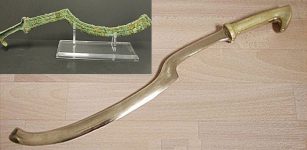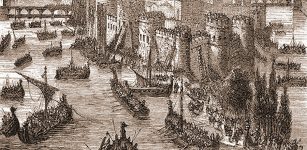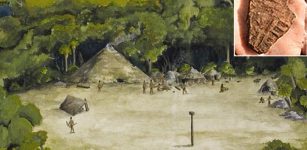On This Day In History: Sverre Sigurdsson Became King Of Norway – On June 29, 1194
AncientPages.com - On June 29, 1194, Sverre (Sverrir) Sigurdsson was crowned King of Norway.
Sverre Sigurdsson (c. 1151-1202) was one of the best-known figures in the medieval history of Norway. According to sagas, he was born and grew up in the foster-father's home, Bishop Roe, in the Faeroe Islands.
Sverre (Sverrir) Sigurdsson - Public Domain
One day his mother told him that he was the illegitimate son of Sigurd Munn, one of the kings claiming the throne and ruling Norway during the turbulent years of civil wars (1130-1240) in Norway.
However, historians say that Sverre's parentage is somewhat unclear, and therefore most of their research was focused on Sverre Sigurdsson and his reign.
Sverre believed in it, and it began to motivate his future actions. Many ancient stories confirm that he was an accomplished military leader and a strong-willed man.
In 1176 Sverre traveled to Norway and became the leader of men called "birkebeinere" ('birch bark legs' – 'Birchlegs'); they were a leaderless group of tax resisters, and Sverre led them in several victorious actions.
They made him their pretender to the throne in 1177 and helped him on his way to this position. The king he was challenging, Magnus Erlingsson (1162–84), became the nation's first crowned monarch (1163) and used church support to gain the throne.
Magnus V (Erlingsson) fell in a battle off the coast from Fimreite in the Sognefjord in 1184, and Sverre became sole king of Norway.
However, the unrest did not end in the country. The church, which strongly supported Magnus V, was in strong opposition to Sverre as king, and several other groups rose against Sverre, including the dangerous 'Baglers' ("baglere," a part of the leaders of the church led by the Oslo bishop Nikolaus Arnesson.
Sverre wanted to establish a national church with the king as its supreme leader. During the conflict, Archbishop Eirik Ivarsson refused to crown Sverre and fled to Denmark with many of the nation's bishops in 1190.
The bishops who remained in the country were forced to crown Sverre and accept him as king. It prompted the Pope, Innocent III, to launch a general interdict against the excommunicated bishops along with king Sverre.
By 1202 Sverrir had defeated the opposition, but the civil war continued in Norway after his death. Before he died, Sverrir asked his son Håkon Sverresson (Haakon III) to make peace with the church, so he did when he succeeded his father.
Sverre Sigurdsson, king of Norway, died March 9, 1202, in Bergen, Norway.
AncientPages.com
Expand for references




















